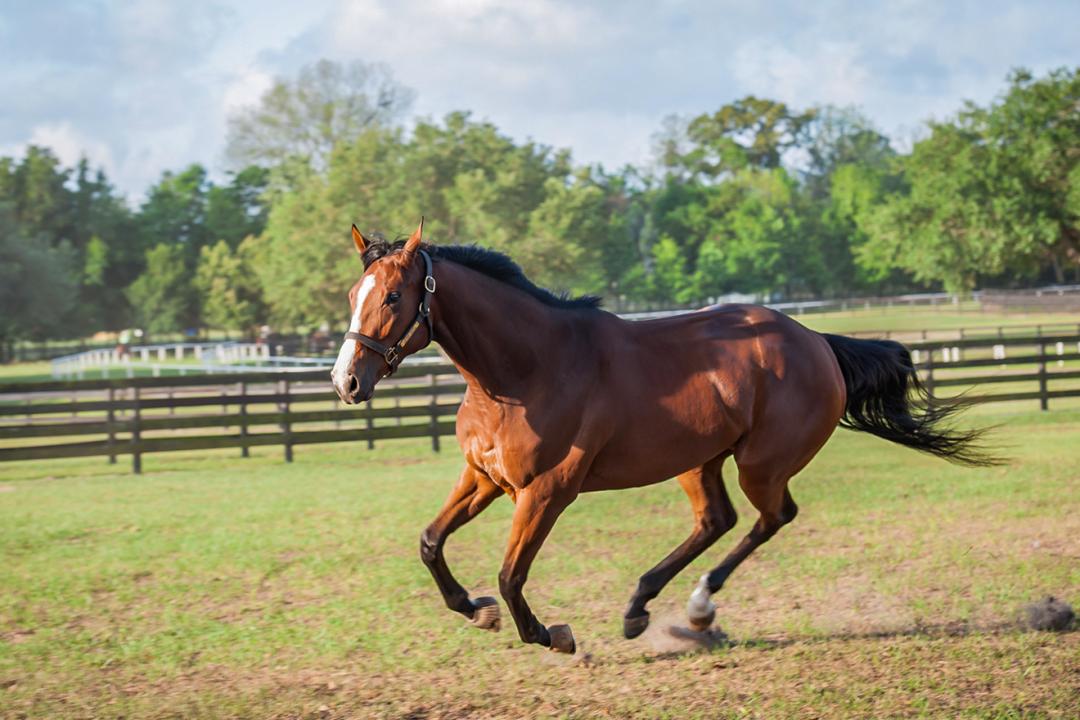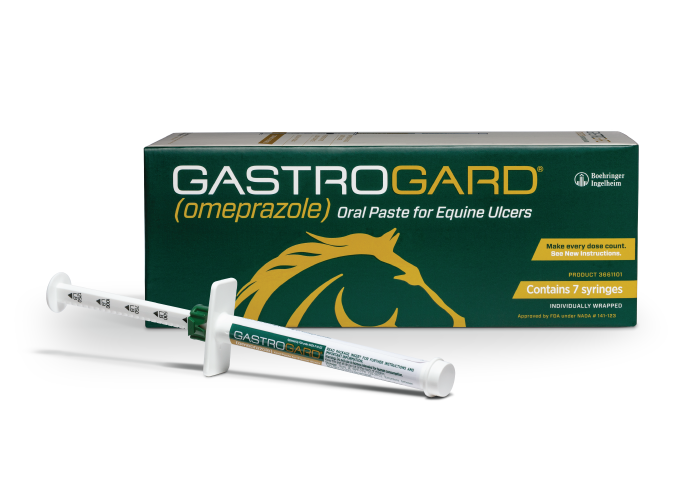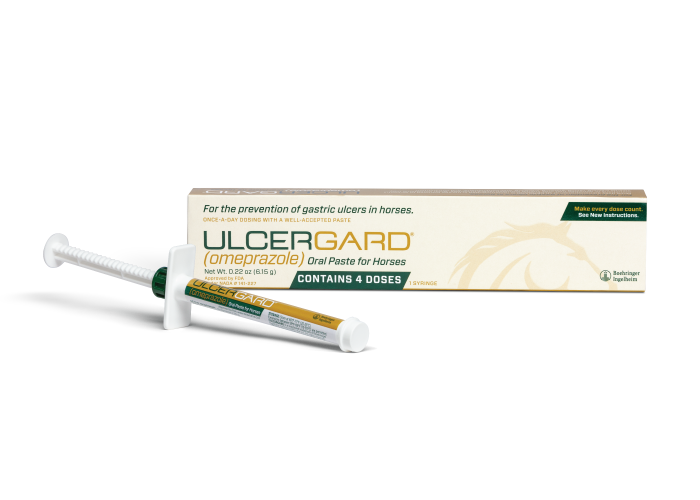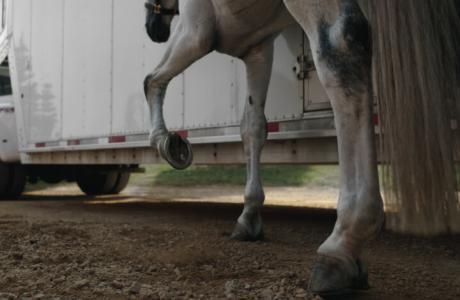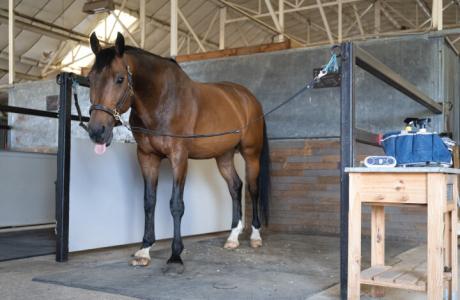Beyond affecting your horse’s quality of life, equine gastric ulcer syndrome (EGUS) can affect your ability to enjoy your relationship with them. Understand what you're up against by exploring the basics of equine gastric health below.


EGUS: What to Know
The equine gastrointestinal system is made up of the mouth, esophagus, stomach and intestinal tract. Many things can affect this system, including infectious diseases such as Salmonella or Potomac horse fever, and noninfectious diseases like impactions or displacements. However, the most common disease that affects the stomach is equine gastric ulcer syndrome (EGUS), which can affect any horse at any age.
Research shows up to 90% of racehorses and 60% of performance horses may be affected.1 The leading risk factors for EGUS are feeding practices and stress. But it's important to note that the types of ulcers vary greatly.


Recognize the Clinical Signs
For many horses, even small changes in routine can potentially lead to gastric ulcers. Some horses may only show subtle changes in behavior that, when coupled with known risk factors, lead you to suspect ulcers.
Clinical Signs of EGUS
- Poor performance, girthiness/cinchiness, lack of flexion, back soreness
- Behavior change, nervousness, aggression
- Recurrent, low-grade colic, especially after eating
- Inappetence, “picky” eater, poor body condition, weight loss, poor coat condition
Known Risk Factors
- Stress
- Episodic feeding practices
- Pain, including subtle, untreated musculoskeletal pain
- Other illnesses causing pain or change in routine
- Management practices
- Exercise
- Changes in routine
Make note of any risk factors and potential moments of stress that could be impacting your horse's gastric health. Some horses display several clinical signs all the time, while others display just one sign intermittently. You know your horse best—if you notice any of these signs in your horse, contact your veterinarian.
Let's Talk Scoping
Once you’ve recognized the signs and contacted your veterinarian, they may perform a gastroscopy exam to definitively diagnose gastric ulcers. During the exam, your veterinarian will pass a flexible endoscope through the horse’s nose and down into the stomach, to evaluate for any ulcers or other abnormalities.
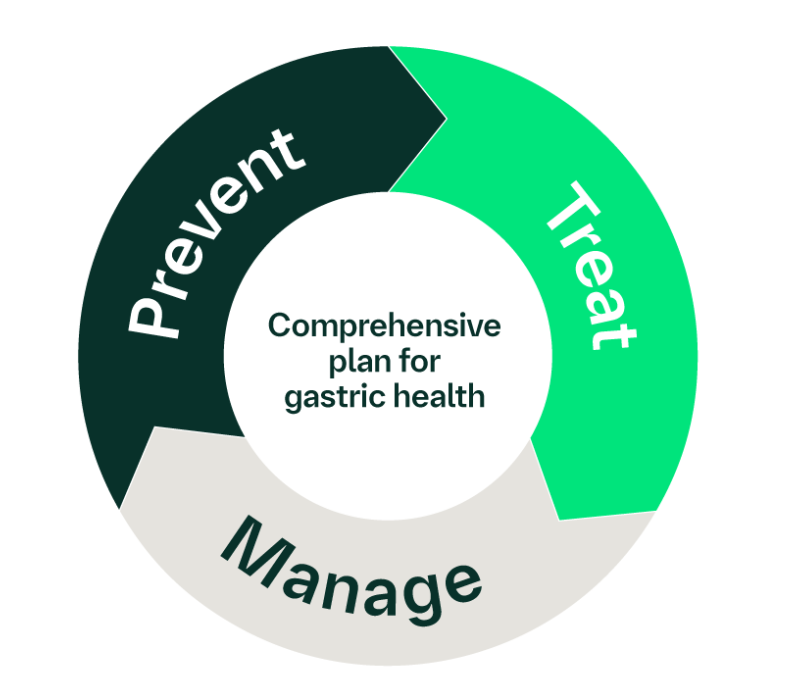

Make Your Gastric Health Plan
You are your horse’s first line of defense against the pain and discomfort of gastric ulcers, and there are actions you can take to support their wellness. Maintaining your horse’s gastric health requires ongoing management, prevention and treatment if ulcers develop.
Manage
Manage your horse’s gastric health daily through:
- Minimizing stress where possible
- Providing forage/hay free choice
- Considering adding alfalfa to their diet to help buffer acid
- Feeding hay before concentrate
- Minimizing concentrate, and feeding only what is necessary in smaller, more-frequent meals
Prevent
You can help prevent the formation of equine gastric ulcers through stress management and strategic use of preventive products.
Another way you can help your horse is with Relax Trax, music specifically designed to relieve stress. Listen and download here.
Treat
Sometimes, the impact of stress and other risk factors cannot be predicted or overcome, and ulcers develop. If ulcers are diagnosed, work with your veterinarian to develop a treatment plan that’s best for your horse.
Related Products
GASTROGARD IMPORTANT SAFETY INFORMATION: The safety of GASTROGARD paste has not been determined in pregnant or lactating mares. For use in horses and foals 4 weeks of age or older. Keep this and all drugs out of the reach of children. In case of ingestion, contact a physician. Caution: Federal (USA) law restricts this drug to use by or on the order of a licensed veterinarian.
ULCERGARD IMPORTANT SAFETY INFORMATION: ULCERGARD can be used in horses that weigh at least 600 lbs. Safety in pregnant mares has not been determined. Not for use in humans. Keep this and all medications out of reach of children. In case of ingestion, contact a physician.
Tune In to Help Your Horse Chill Out With Relax Trax
Relax Trax was specifically designed to mimic the rhythm of a horse’s gait, using string instruments to relieve stress in your horse.2 Watch the video to learn more about the science behind the music.
Related Articles
References
1 Sykes BW, Hewetson M, Hepburn RJ, et al. European College of Equine Internal Medicine Consensus Statement — Equine gastric ulcer syndrome in adult horses. J Vet Intern Med 2015;29(5):1288—1299.
2 Marlow J. Massage or music meant to be relaxing, result in lowering salivary cortisol concentration in racehorses. Int'l Anim Health J 2017;8(4):24–27.
3 GASTROGARD product label
ULCERGARD® and GASTROGARD® are registered trademarks of Boehringer Ingelheim Animal Health USA Inc. ©2025 Boehringer Ingelheim Animal Health USA Inc., Duluth, GA. All rights reserved. US-EQU-0100-2024
